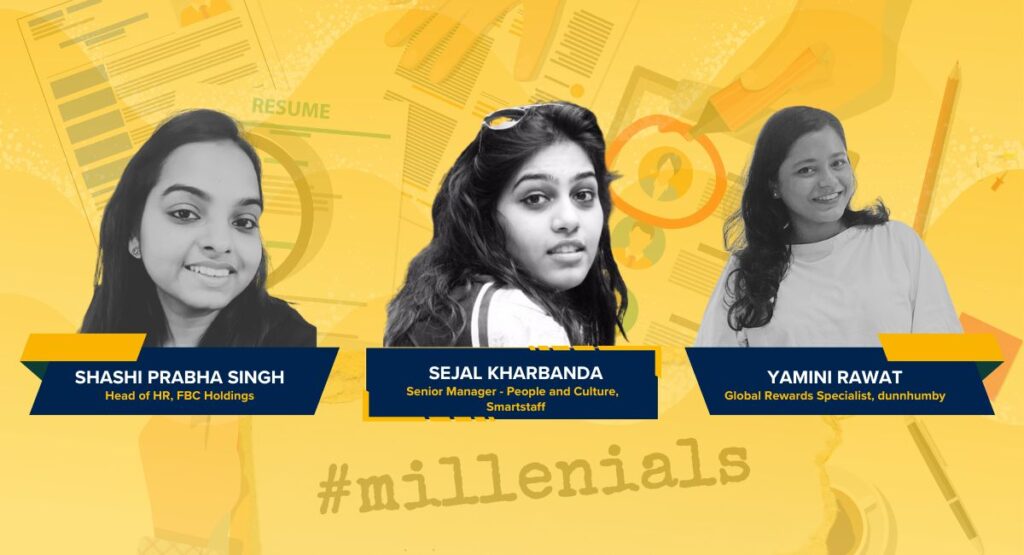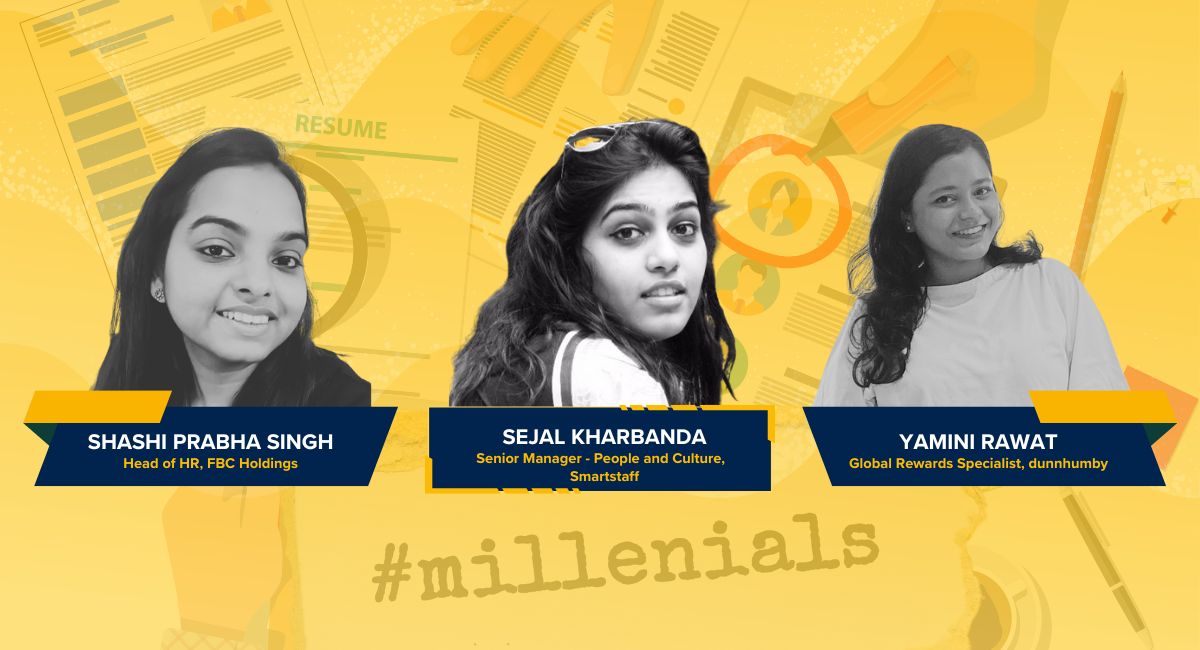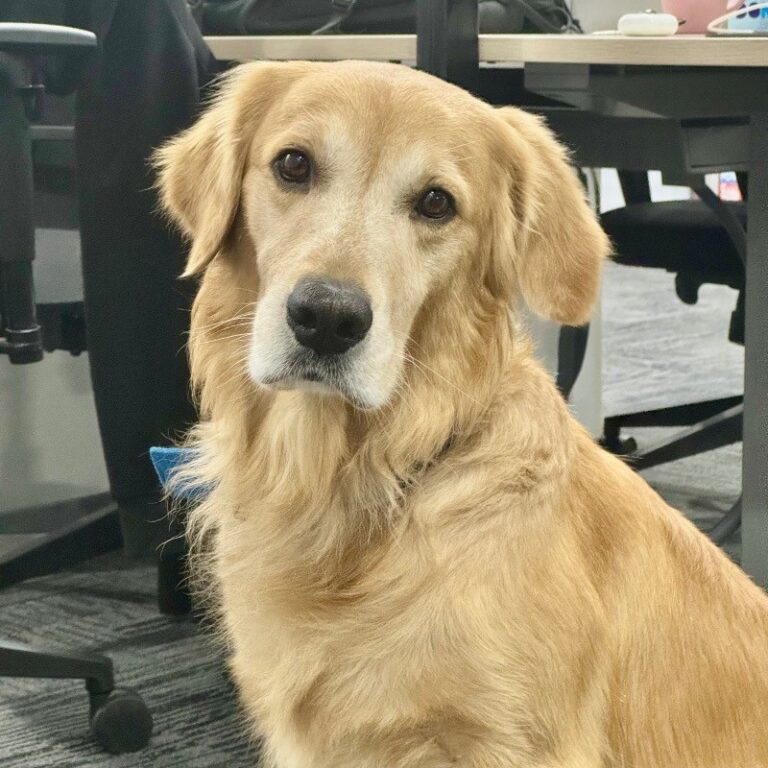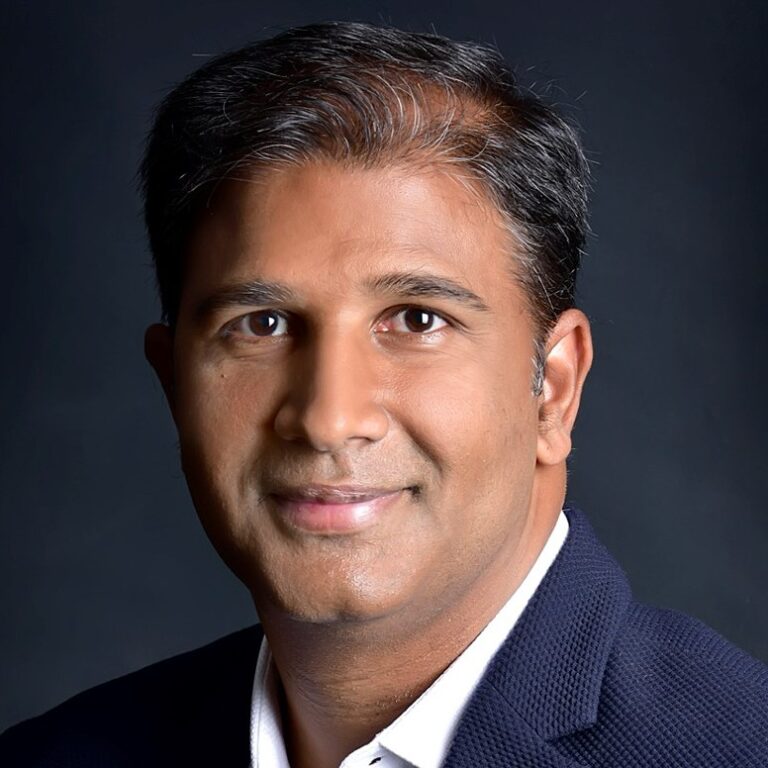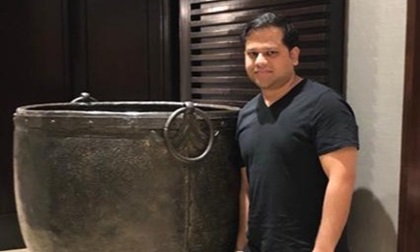Like every industry, Human Resources (HR) has changed with the rise of millennials within its space. Their young minds and unbridled zeal have helped the industry evolve beyond its basic functions and become a space where employees feel valued and appreciated.
At ThePeoplesBoard, we talked with Sejal Kharbanda (Senior Manager of People and Culture, Smartstaff), Yamini Rawat (Global Rewards Specialist, dunnhumby) and Shashi Prabha Singh (Head of HR, FBC Holdings) to understand their journey, their experience, and their dreams when it comes to working in the HR sphere.
In this article, we will explore the views of these rising stars of the HR field, understand the similarities and differences in their experiences, and examine how their journey so far has shaped the mindsets of these millennials in HR.
Career in HR: A path chosen through personal and professional interests
When deciding to be a part of HR, personal and professional goals often come into play. Like any other field, HR has its own challenges and preconceptions which might deter a newbie. However, for these three professionals, HR is a culmination of personal interest and professional growth.
“I’ve been fascinated by Psychology from a young age—there’s always been a strong pull toward understanding people, their motivations, and behaviours. That curiosity led me to Human Resources, a space where I could apply this understanding in a real, impactful way. For me, HR is not just about creating meaningful employee experiences. It’s about using behavioural insight to unlock the full potential of individuals, which in turn unlocks the full potential of businesses. That intersection of people and performance is what continues to inspire me.” – Sejal Kharbanda.
“Initially, as a generalist in the Banking domain, covering the North region, I gained a valuable, holistic understanding of the employee lifecycle. This foundation led me to a core Talent Acquisition role with my next organisation, where I focused on senior leadership hiring across India. This phase presented a different work dynamic and offered significant learning opportunities in recruitment strategies and nuances. My current position has allowed for both vertical and horizontal growth, transitioning from the TA team to People Services and now to Benefits. This internal mobility, while perhaps less common in India, has provided fantastic avenues for professional development within the same organisation.” – Yamini Rawat.
“To be honest, people motivated me to be in the HR industry. I always wondered how they work in complex tasks and functions. I wanted to be at a place that can oversee and support management decisions, can make a strong impact on stakeholders and improve cooperation and collaboration. I wanted to be the interviewer first and understand why candidates get rejected or selected. How does HR, as a person, respond to conflict issues? That is why people motivate me. We all are very different in personality and respond differently.” – Shashi Prabha Singh.
For people like Sejal and Shashi, HR is about exploring the intricacies of human interactions. On the other hand, Yamini found a place to grow and thrive in a professional capacity. Each one of entered embarked on their respective HR career paths to explore their interests, which likely provided them with the zeal to succeed with such a rapid pace.
The guiding hands: Mentors, managers, and moments
While motivation can be a huge factor for one’s success, one cannot underestimate the power of the right guidance. Only zeal is not enough to forge ahead and learning is a process that should never be stopped.
“I wouldn’t say there’s just one person—I’ve drawn inspiration from many sources over the years. From professors who sparked my early interest in psychology and human behaviour, to peers who’ve challenged my thinking, and leaders who’ve shown me what great people leadership can look like. Each one has left an impression that’s shaped the way I approach my work today.” – Sejal Kharbanda.
“I’ve been fortunate to learn from numerous individuals throughout my career, not just my seniors but also my junior colleagues.” – Yamini Rawat.
“My family comes from engineers and tech people, or with government jobs, I was the one who chose this industry, and initially, there were no idols for me. As soon as I started working I met some amazing people who were my managers, colleagues, and they shaped my thoughts and vision. They always wanted me to work independently, the approach to work and mentor me was simple, they were honest with my work, and they were ready to answer my questions every time and I think that is why they are great leaders and others also see them as strong personalities.” – Shashi Prabha Singh.
Consistently, all three of these HR professionals have emphasised that guidance, today, is not restricted to a single number and should not be taken only from those above you in the corporate ladder. To be truly successful, you need to have an open mind and a desire not to let any learning opportunity slip by.
Their mantra for success
Most professionals have a mantra that they cling to when it comes to success. What a person chooses to believe in plays a huge role in shaping their HR careers and how fast they climb the ladder.
“Get comfortable being uncomfortable. A college professor once told me that in the real world, when you feel too comfortable in your current environment, it’s usually a sign that it’s time for your next challenge. That advice stuck with me. Growth rarely happens in comfort zones—it happens when you’re navigating unfamiliar territory, asking better questions, and stretching your limits. I’ve learned to embrace new challenges because it usually signals that I’m evolving. That mindset has helped me stay adaptable, open to change, and constantly learning.” – Sejal Kharbanda.
“I firmly believe that the notion of being solely a ‘smart worker’ over a ‘hard worker’ is inaccurate. In my experience, success is initially built on hard work. As one gains experience and knowledge, smart work naturally evolves. This has been a guiding principle for me.” – Yamini Rawat.
“My Mantra when it comes to success is that ‘progress is impossible without a change.’ To make something work and to be better, you must take initiative where you can professionally grow and be a better version of yourself.” – Shashi Prabha Singh.
The difference in the mantras of Sejal, Yamini, and Shashi highlights how success is not the same for everyone. While all three of them value growth, hard work, and change, they have each chosen to focus on one aspect more than the other. Our advice to you when coming up with your mantra? Choose what resonates with you the most when writing your HR success story.
HR misconceptions: What they want the world to know
Looking from the outside, it is easy to form misconceptions. The field of HR is not safe from this phenomenon, much to the woe of those who are a part of this industry and feel strongly about its ideals.
“That HR operates at the powerful intersection of business strategy and emotional intelligence. It’s not just about people, and it’s not just about processes—it’s about aligning the two to drive outcomes that are both human-centred and business-relevant. HR professionals constantly translate business goals into people practices—whether it’s building culture, shaping leadership, or managing change. And that takes more than empathy; it takes insight, foresight, and a deep understanding of what motivates people and what moves the business forward. It’s not a ‘soft’ function—it’s one of the most dynamic and strategic functions in any organisation when it’s done with intent and clarity.” – Sejal Kharbanda.
“While HR is often perceived as a support function, and unfairly labelled as ‘not doing anything,’ this couldn’t be further from the truth. Without a robust HR function, organisations would face significant challenges.” – Yamini Rawat.
“One thing I wish people knew about HR is not just about hiring and firing, or just making Rangoli, or celebrating birthdays and work anniversaries. HR is also complex; it revolves around the psychological behaviour of people and how they respond to certain things. Supporting and guiding are much needed to shape the employee mindset at certain times. I wish people knew that it is not just acting as a bridge between employee and employer, it is more than that. I wish people could actually see the hard work they go through to make something work.” – Shashi Prabha Singh.
As is evident, the idea of HR being perceived as an “easy” field without any strategic importance is something all three feel strongly about. Their opinions are a reflection of what most HR professionals feel today.
A piece of advice for the newbies
With fresh memories of their first days as HR professionals, Sejal, Yamini, and Shashi have some critical HR career advice for those following in their footsteps.
“Don’t just follow trends—understand context. Every organisation, every team, and every individual is different. The best HR professionals are those who can combine frameworks and theory with deep listening and business insight to fit real people and real problems. By combining empathy with analytical thinking, you position yourself as a bridge between people and strategy—where the true impact of HR lies.” – Sejal Kharbanda.
“My advice to the new generation entering HR is to be consistently open to learning and observation. Every person you encounter has something valuable to offer that can enhance your skills. Humility towards everyone is key.” – Yamini Rawat.
“My biggest advice for those who are new to the field would be to try to learn good things when we talk about HR, do internships and have practical knowledge. Enroll yourself in certification courses and read articles. HR is a vast subject, and just book knowledge won’t give you anything. Try to understand new trends in the market.” – Shashi Prabha Singh.
Learn, grow, and be aware; that is the essence of what the three recommend to all the beginners in HR. Yamini’s insistence on learning, Shashi’s emphasis on practical experience, and Sejal’s advice of ‘combining empathy with analytical thinking’ each one of them has highlighted some of the core steps one can take to succeed in HR.
In the end…
HR is now entering the new era. In this era of transition, young HR professionals like Sejal, Yamini, and Shashi are becoming the face of change with their zeal and hard work. With things like continuous learning becoming more prominent, while technology is taking over the administrative tasks, initiative has become the name of the game that is HR.
By pouring their heart and soul into their work, these millennials in HR have accomplished impressive feats in a fraction of the time, as compared to the professional journeys of those from generations past. While HR was once seen as nothing more than a support role, young professionals like these three are now acutely aware of the growth possibilities within the field.
Is a career path in HR free of hurdles? Certainly not. As shared by Sejal, Yamini, and Rawat, HR is shrouded by misconceptions and requires significant hard work and determination. However, for them, the efforts seem to be quite worth it as they remain, as ever, passionate about their work and the future of HR.
